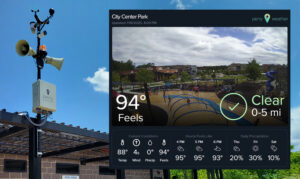September is National Preparedness Month, and Insurance Commissioner Ralph Hudgens is encouraging Georgians to take the necessary steps to ensure protection for their family and property in the event of a disaster.
The 2016 theme for National Preparedness Month is “Don’t Wait, Communicate. Make Your Emergency Plan Today.” Georgians who develop an insurance plan can help make their recovery process a little easier with these tips:
Step One: Prepare For the Worst
· For personal safety, identify what storm shelter is closest to you and prepare an evacuation plan. Choose two meeting places: one right outside your home in case of a sudden emergency, such as a fire, and one outside your neighborhood if you can’t return home.
· Take proactive steps to protect your property from loss such as installing storm shutters or cover windows before a hurricane.
Step Two: Take an Inventory of Your Property
· It’s always a good idea to have current photos or videos of your home before a disaster strikes. If you use a digital camera, email the photos to yourself, a friend or a relative, or store them online in a Cloud.
· Take an inventory of your personal property, such as clothes, jewelry, furniture, computers and other electronic equipment. Photos and video of your belongings, as well as sales receipts and the model and serial numbers of items, will make filing a claim faster. Leave a copy of your inventory with friends or relatives, email it to yourself, and/or store it in a safe location. Additionally, add information such as the name of your insurance company and agent, policy number and contact information to your inventory.
Step Three: Review Your Insurance Coverage
· Review your insurance coverage. What does your insurance policy cover? What does it exclude?
· The standard homeowners’ insurance policy does not cover flood damage. Check if your policy covers debris removal and sewer backup.
· Find out if your policy covers additional living expenses to reimburse you for the cost of a temporary residence if you are unable to live in your home.
· Be sure you understand the difference between replacement cost and actual cash value.
Step Four: What to Do After Disaster Strikes
· File your claim as soon as possible. Call your insurance company or agent with your policy number and other relevant information. Your policy may require that you make the notification within a certain time frame.
· Ask what documents, forms and data you will need to file a claim. Keep a log of all conversations with insurance companies, creditors or relief agencies.
· If your home is damaged as to make it uninhabitable, ask your insurance company if you have coverage for additional living expenses. Take photographs/video of the damage.
· Make the repairs necessary to prevent further damage to your property (cover broken windows, leaking roofs and damaged walls). Don’t have permanent repairs made until your insurance company has inspected the property and you have reached an agreement on the cost of repairs.
· Maintain any damaged personal property for the adjuster to inspect.
· Save all receipts, including those from the temporary repairs covered by your insurance policy.
· Be wary of contractors who demand upfront payment before work is initiated or payment in full before work is completed.
Commissioner Hudgens also encourages Georgians to visit www.ready.ga.gov to learn more about the risks facing their communities.
If you have any questions, call the Georgia Department of Insurance toll free at (800) 656- 2298 or visit www.oci.ga.gov.













Leave a Comment
You must be logged in to post a comment.